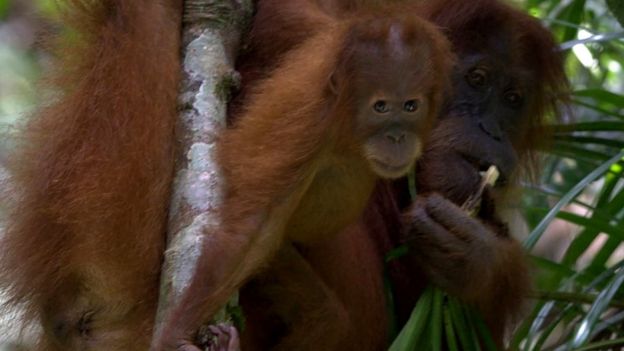Primates facing 'extinction crisis'

The world's primates confront an "annihilation emergency" with 60% of species now debilitated with eradication, as per research.
A worldwide review, including more than 30 researchers, evaluated the protection status of more than 500 individual species.
This additionally uncovered 75% of species have populaces that are declining.
The discoveries are distributed in the diary Science Advances.
Teacher Jo Setchell from Durham University, an individual from the group, clarified that the primary dangers were "gigantic living space misfortune" and unlawful chasing.
"Woods are pulverized when primate living space is changed over to modern agribusiness, leaving primates with no place to live," she told BBC News.
"Furthermore, primates are chased for meat and exchange, either as pets or as body parts."
Different dangers - all determined by human conduct - are woodland leeway for animals and steers farming; oil and gas boring and mining.
"The short answer is that we should diminish human control of the planet, and figure out how to impart space to different species," Prof Setchell remarked.
No option
Sumatran orangutan (c) Perry van DuijnhovenImage copyrightPERRY VAN DUIJNHOVEN
Picture subtitle
Deforestation has driven the Sumatran orangutan to the edge of elimination
The review likewise refered to destitution and common distress as a main impetus for chasing - in the poorest parts of the world many individuals are being headed to chasing primates with a specific end goal to nourish themselves.
"We have to concentrate on the advancement of these parts of the world and ensure individuals have an option wellspring of protein," said Prof Serge Wich from Liverpool John Moores University.
He brought up that the loss of primate species spoke to the loss of timberlands that are basic for the eventual fate of our own species.
"These woods give fundamental administrations to individuals," he told BBC News.
"They help in being carbon stocks to moderate environmental change; they help in giving clean water and giving fertilization administrations to individuals, so they can develop their harvests."
The analysts likewise indicated some individual decisions that individuals could make as buyers, especially in the west, to abstain from adding to tropical deforestation.
"Basic illustrations are don't purchase tropical timber, don't eat palm oil," said Prof Setchell.
In any case, more comprehensively, "we have to raise neighborhood, local and worldwide open consciousness of the predicament of the world's primates and what this implies for biological community wellbeing, human culture, and eventually human survival.
"In industrialized countries, we should diminish our interest for assets that we don't need, and quit mistaking needs for requirements."
Dr Christoph Schwitzer, from the International Union for the Conservation of Nature is likewise chief of protection at Bristol Zoological Society. He told the BBC that it was his "solid conviction" that "with a coordinated exertion by the world's legislatures and preservationists, primate decays can be stopped and populaces settled".
He included that adjustments in buyer conduct could help, for instance "picking FSC-guaranteed wood and paper items, and ensuring palm oil originates from practical sources".
Dr Schwitzer included: "Secured ranges [of habitat] and proficient law requirement will be vital."

Post a Comment